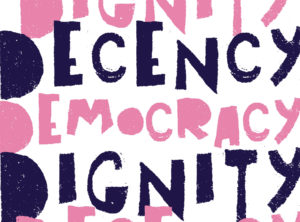A vision of global healing.
September 22, 2019And a new paradigm for center-based spirituality for all of our guiding institutions.
Imagine, for a moment, living in a world born from spirituality. Visionary Matthew Fox embraces a concept of a creation-centered spirituality, in which all that exist are a blessing and bring ancient wisdom to solve current issues.
Fox embraces a sacred relationship between humanity and the Earth.
“Fox’s prophetic vision of good for all people everywhere, combined with an experience of mystical unity, became the hallmark of his work.” [Science of Mind/October]. He embraces the ancient wisdom of Creation Spirituality, adapted to present-day concerns.
Creation Spirituality affirms a common ground among all the world’s faith traditions. Juline explains: “It is a theology that respects the sacredness of nature and the holy relationship humanity has with it. Centuries-old mysticism melds with current concerns about damage to the environment, social injustice, and all forms of destruction and exploitation.”
Radical compassion [mine], ‘where the harvest is compassion, unity, love, inclusion, creativity and good for everyone.’
-Kathy Juline is an author and former editor of “Science of Mind” magazine.
Fr. Richard Rohr: “When we carry our small suffering in solidarity with humanity’s one universal longing for deep union, it helps keep us from self-pity or self-preoccupation. We know that we are all in this together. It is just as hard for everybody else, and our healing is bound up in each other’s. Almost all people are carrying a great and secret hurt, even when they don’t know it. This realization softens the space around our overly defended hearts. It makes it hard to be cruel to anyone. It somehow makes us one—in a way that easy comfort and entertainment never can. Some mystics go so far as to say that individual suffering doesn’t exist at all and that there is only one suffering. It is all the same…”
Be the change.
We have more power than we know. We must collectively harness our power for change.
A X I O S
Walmart, which first banned assault weapon sales and now vaping products, is providing a template of how CEOs can move beyond a monomaniacal focus on profits, Axios CEO Jim VandeHei writes.
- Why it matters: It’s one thing to sign an unenforceable pledge to think more about employees and society, like most members of the Business Roundtable did. It’s another to take specific action while politicians dither.
In conversations with a half-dozen CEOs this week, we were stunned by how much pressure business leaders are feeling to take social action. If so, here’s what they can do:
- JPMorgan Chase, Starbucks, Walmart, Amazon and many others increased their minimum wage to $15. Every CEO has the power to do this.
- Delta Airlines returns billions in profits to employees — this year, a bonus equal to 14% of their annual pay — and has grown since making this change. Every company can do this.
- Amazon this week became the first to sign The Climate Pledge to be net-zero carbon across its businesses by 2040 — a decade ahead of the Paris Agreement’s goal of 2050. An individual company can’t put a dent in overall pollution — but a bunch might.
- Stripe, the online payments platform, announced last month that it plans to spend at least $1 million a year to pay for direct removal of carbon dioxide from the atmosphere. Stripe said in its emissions announcement: “For other companies: Please reach out to Stripe to join our commitment.”
- Bank of America last year stopped lending money to makers of military-style assault weapons.
- Dick’s Sporting Goods paid a price in its earnings after it initially made it harder to buy firearms in its store, but then went even further this year.
What else can be done:
- They could also limit CEO pay if they wanted to narrow the gap in their own shop.
- All retailers control what’s on their shelves, so if they want to eliminate AR-15s, or vaping, or whatever — free enterprise permits it.
- All companies control child care, family leave and health policies and can be as generous as they choose.
The big picture: The new public assertiveness by corporations follows an earlier wave, after President Trump took office, of CEOs taking stands on immigration, climate, gender equality and other issues that their predecessors avoided.
- Apple’s Tim Cook, who has become increasingly vocal, said at a Fortune conference last year: “Apple is about changing the world. It became clear to me some number of years ago that you don’t do that by staying quiet on things that matter.”
The bottom line: The pressure on CEOs from employees, customers and communities seems to only be intensifying.
- Go deeper: “CEOs are America’s new politicians” … “CEOs under more pressure to save society” … “A new form of American capitalism.”



